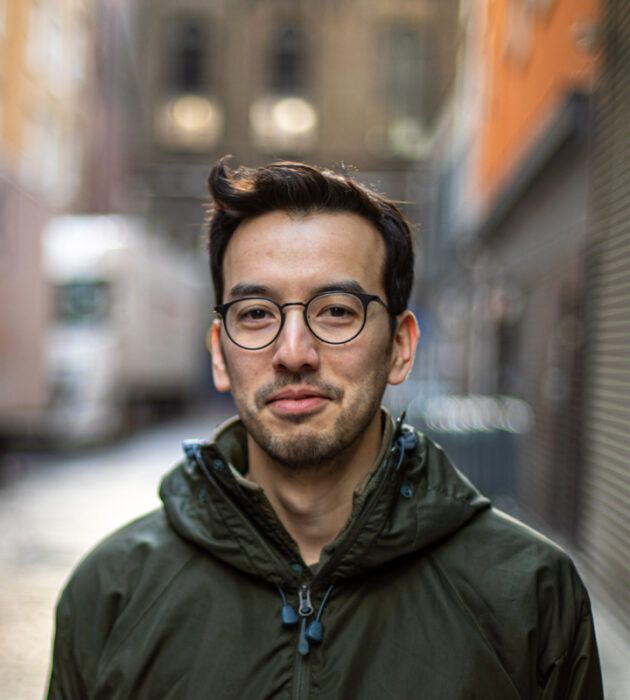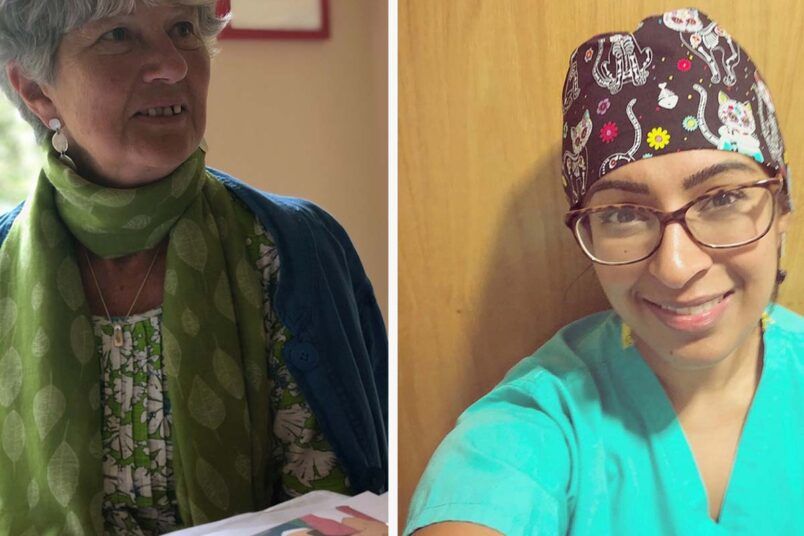
Time for a change

Back in May, we hosted the first of our Important Conversations online seminars — “Will coronavirus change how we talk about dying?”.
Our panel of healthcare professionals, patients, campaigners, authors, and journalists, as well as the hundreds of people tuning in via Zoom, came together to discuss what lessons we can take from this pandemic when it comes to talking about and planning for the end of life.
During the webinar, we received so many questions from attendees that we couldn’t answer them all. So through a series of blogs, our panelists are going to give their views on some of those unanswered questions.
Amanda Blainey from the Doing Death podcast asked:
How can we move away from a “doctor knows best” culture when it comes to end of life decisions? How can we put control back in the hands of the patient? And who should be responsible for bringing about change?
To tackle this question, from both a patient and a medical viewpoint, we’re delighted to welcome back patient advocate Molly Bartlett and anaesthetist Dr Anushka Aubeelack.
Molly responds…
I am a patient and have a strong belief in my rights but I think it is unrealistic to swing the pendulum completely from “medics know best” to “patient knows best”. I think both have an important role to play in enabling you to make decisions about your own health.
The centrality of the individual in their own lives, their history, beliefs, and relationships should always lead the decision-making process. And it is confidence in ourselves that can bring about good conversations and genuine respect between patient and clinician. However, at a medical level, there are lots of times when a patient is less informed and needs honest information from a doctor to be able to make a choice that’s right for them.
Having an honest dialogue
How do we get to a stage where such honest dialogue is possible? Firstly, medics do need to relinquish some of that knowing authority and assumption about what a patient should or would want. Secondly, it’s helpful if patients have thought about and are honest about their wishes, fears and priorities.
This obviously takes the right intent from both parties to make it work. I think some doctors want strongly to offer some hope, and fear that putting forward the idea of not pursuing every possible treatment is just too negative. On the contrary, I think there are times when patients would welcome more honesty from the people who care for them.
Who can bring about change?
At a more societal level, campaigning organisations have a key role to play in education and cultural shifts, and in providing good quality information that we, the patients, can use in preparation for communication with others about end of life decisions. The right materials can be so valuable in assisting those dialogues with medical professionals, with family, and with partners.
Television programmes of all kinds have a role in demonstrating this culture shift and providing fresh perspectives and examples of how to have good conversations and complete the processes (such as advance care planning) that can assist people to get what they want from their treatment and care.
We mustn’t forget that the next generation of health and social care professionals will be key to this shift in attitudes. Those training new healthcare teams have a major responsibility in helping to bring about this significant change.
Finally, but perhaps most vitally, individuals, whoever they are, can create change within their own environments, with friends, neighbours, and colleagues, all of whom may then pass on some ideas about what matters at the end of life to others. I myself have created a circle with those close to me around these issues simply by being willing to talk about my own experiences of making decisions about care and treatment.
Individually, all of us, whether professional or patient, have a responsibility to consider our mortality.
We talk about birth, why not death?
We have no hesitation in providing methods to promote an understanding of our entry into the world (birth) but are strangely coy about our exit from it (death)! Ideas about childbirth are taught in schools, consolidated by listening and observing the paths of the adults we know as we move through life. Why can’t it be same in the case of learning about death?
I think a similar ongoing process with regard to thinking about death could be adopted. And this would achieve a better understanding of our own mortality and our exit from the world. This could be supplemented by specific ideas and materials as adult life progresses. Thus the average adult could have “faced” mortality head-on from a much earlier stage in life and have had time to develop a better capacity to discuss it in an informed and enquiring manner.
Dr Anushka Aubeelack responds…
There continues to be hang ups from the time when doctor-patient relationships followed the patriarchal model. Not so long ago, the public went along with the belief that doctor does know best and their word was never questioned.
This relationship is shifting to a more collaborative, patient-centred model and will continue to do so as those taught modern medical degrees climb the ranks.
Doctors should listen not just treat
Doctors are becoming better listeners. A significant part of the modern medical curriculum is dedicated to communication skills. A productive conversation, however, does require at least two participants. As healthcare professionals continue to improve our communication with our patients, I hope our patients will respond by telling us what they want from their care, including at the end of life.
In these conversations, there is one hurdle in particular that the medical profession needs to overcome; the feeling of failure when a patient is dying.
As Molly says, this can be a barrier in the discussion of potential treatments as the option of ‘no treatment’ is sometimes overlooked. The consequence of medical advancements is that ‘no treatment’ seems like an alien concept if there are potential options not explored. We, and I refer to healthcare professionals as well as patients, sometimes forget to factor in the impact of these treatments on quality of life whilst we are battling to increase quantity of life.
Drop the death taboo
As Molly rightly says, we cannot solely rely on the doctor-patient relationship to improve conversations about advance life planning. This requires society as a whole to become more comfortable communicating about dying and death. Through the medicalisation of death, we have made dying taboo and this needs an honest redress.
We need to encourage realistic conversations about chronic health conditions and find out what is important to us regarding our quality of life. We need to normalise advance life planning. Organisations such as Compassion in Dying have been beating this drum for a while. The global arrival of COVID-19 has made the audience more receptive to the message but there is still so much work to do.
What next: Let’s take control
So what is our individual responsibility here? Well, I personally plan to continue sounding like a broken record! Like most things in life, it is about education. We have a responsibility to educate ourselves and to encourage others to do the same. Bring the subject up over dinner with your friends. Ask your parents if they have considered nominating a lasting power of attorney for their healthcare decisions in case they lose capacity to make decisions in the future. Start thinking about making a living will to refuse treatment you wouldn’t want. Google search for information on advance statements.
With this knowledge, we empower ourselves and can make more collaborative decisions about our future health and treatments with our medical teams.
If you’d like to join the conversation talk to us on Twitter, or leave a comment.